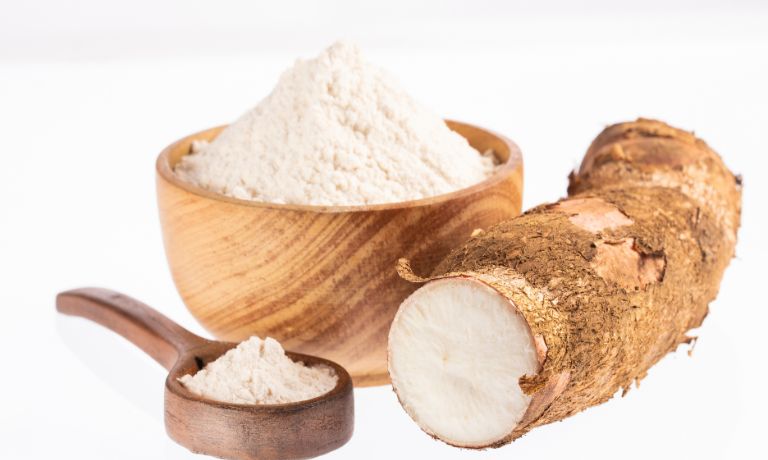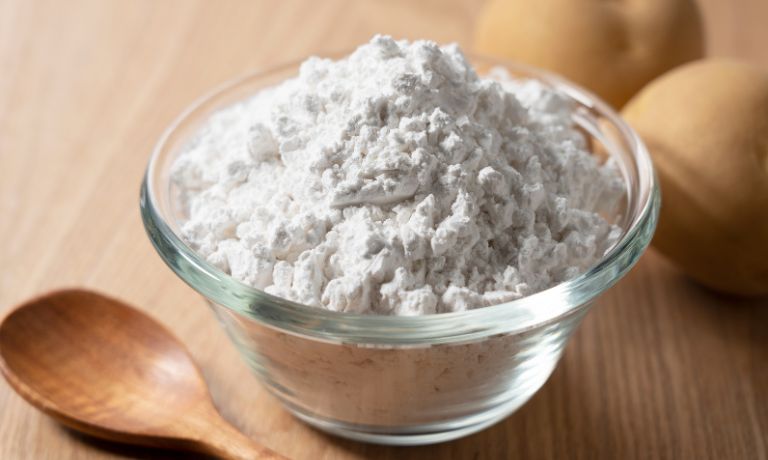For pasta lovers, nothing compares to the unique flavor created when boiling water and cooked spaghetti together; but there is a substitute that can provide amazing results.
If you’re looking for a healthier alternative to traditional pasta water, look no further than cold-pressed vegetable broth!
It cuts time from your cooking process without sacrificing taste and has added benefits, including extra nutrition and helping maximize your vegetables’ flavors.
Read on for more information regarding this easy-to-make and delicious substitute for pasta water.
What Is Pasta Water?
Pasta water is the starchy liquid left over after boiling pasta. It is full of starch and nutrients that can add flavor and texture to dishes when cooking.
Its high starch content makes it great for thickening sauces, helping bind ingredients, and adding a silky texture.
It can also be used as an alternative to oil in salad dressings or to make a quick and flavorful broth.
Its versatility makes it a great addition to any kitchen. You can easily incorporate pasta water into your cooking routine with just a few simple steps.

Substitutes For Pasta Water
If you don’t have any pasta water to use in cooking, several other options to substitute for pasta water can be used.
Corn Flour
Corn flour is a finely milled powder made from dried corn kernels. It is a popular ingredient in many baking recipes as it gives cakes and breads a lightness of texture and subtle flavor.
However, its uses go beyond the realm of baking. An interesting use for corn flour is as a substitute for pasta water in cooking.
When cooking pasta, the starch from the noodles is released into the boiling water. This starchy water can help thicken sauces and bind ingredients together.
Corn flour can be added to boiling pasta water to achieve a similar effect. It also helps to give sauces a thick and glossy texture.
Corn flour is also an ideal substitute for many other thickening agents. It can thicken soups, stews and gravies without adding fats or oils.
Additionally, corn flour can be combined with dry ingredients such as cheese, herbs and spices to create a light coating on foods such as fish and vegetables.

Flour
Flour is a fine powder made by grinding grains, typically wheat, and is often used to prepare many dishes.
Flour can be used for baking bread and cakes, thickening gravies or sauces, making pastries, coating foods before frying, or even giving food a crunchy texture.
Regarding cooking, flour can be used as a substitute for pasta water in some dishes.
Its absorbent nature can help bind ingredients together and keep sauces or gravies thick, resulting in a more consistent texture than plain water.
Adding flour to a pasta sauce mixture helps create a thicker texture that won’t separate when cooked.
When flour is added to boiling water, it also helps release starches from the grain, which can help give a dish an overall creamier consistency.
Additionally, adding flour during cooking can help keep pasta shapes intact and prevent them from sticking together.

Arrowroot
Arrowroot is a starchy, flavorless powder made from the arrowroot plant. It is often used as a substitute for cornstarch or flour in baking and cooking, but it has many other uses outside the kitchen.
Regarding pasta water substitution, arrowroot is an excellent choice to thicken sauces without adding flavor or color.
It dissolves quickly and thickens at a lower temperature than cornstarch or flour, making it ideal for delicate sauces.
Add one teaspoon of arrowroot powder to the pasta water before you boil it and whisk until dissolved. This will help create a creamy sauce that can be used on any pasta.

Boiled Potato
Boiled Potato is a form of potato where the potatoes are cooked in boiling water until they are soft.
Boiled Potatoes can be used as a substitute for pasta water when cooking dishes such as macaroni and cheese, lasagna, or mashed potatoes.
They help to add flavor and texture to recipes while also helping to keep them moist and tender.
The starch from the potatoes helps to thicken sauces and binds ingredients together in dishes like macaroni and cheese.
Boiled Potatoes can also help emulsify (or bind) ingredients in a dish, such as butter and seasonings or cheese with milk.
Additionally, boiled potatoes provide a low-fat substitution for pasta water and a healthier alternative to butter or cream for flavoring.
Boiled Potatoes are an easy alternative to pasta water, as they cook quickly in boiling water and require minimal preparation.
You must peel the potatoes, cut them into cubes or smaller pieces, rinse them off, and then boil them in salted water until they are soft.
Boiled Potatoes are a great, low-calorie pasta water substitute perfect for healthy, delicious dishes.
Potato Starch
Potato starch is a refined flour made from potatoes. It’s an important ingredient in potato-based dishes and can also be used as a substitute for pasta water in cooking.
Potato starch has a naturally low glycemic index, so it won’t spike your blood sugar levels like regular wheat flour.
Potato starch adds a nice glossy sheen to dishes, making them look more appetizing. It also thickens sauces and gravies, helping to create the perfect consistency.
Potato starch can be used in place of traditional wheat flour when making noodles or pasta.
Finally, using potato starch instead of regular wheat flour can give your dish a lighter texture and a more delicate flavor.
If you are looking for a healthier pasta alternative, potato starch could be just the right substitute!

Tapioca Starch
Tapioca Starch is a type of starch extracted from the cassava root. It is commonly used as a thickener, binding agent, and texturizer in cooking.
Tapioca Starch has many advantageous properties that make it an ideal cooking substitution for pasta water.
First of all, tapioca starch is extremely absorbent, meaning it can be used to thicken sauces and gravies quickly.
Because of its ability to absorb liquid quickly, tapioca starch can also help bind ingredients in various recipes like dumplings, fillings for pies and pastries, or as an alternative to eggs in baking recipes.
Tapioca starch is also healthier than other starches and many other alternatives to pasta water.
Cornstarch
Cornstarch is a powder made from the endosperm of corn grain.
It is commonly used as a thickening agent in recipes and can make sauces and gravies thicker without adding fat or calories.
When used as a substitute for pasta water, cornstarch helps to create a silky textured sauce that will cling to the noodles. The powder can absorb and retain more moisture than regular flour.
Additionally, it thickens sauces and gravies faster than flour-based ingredients, resulting in a smoother, more uniform texture.
Xanthan Gum
Xanthan gum is a commonly used thickener and stabilizer in food manufacturing.
It’s made by fermenting sugar with a bacteria, which produces an exopolysaccharide (a long chain of sugars) that can be used to thicken liquids or form gels.
In cooking, xanthan gum is often used as a substitution for pasta water, typically added to thicken the sauce and give it a glossy texture.
The advantage of using xanthan gum over pasta water is that it’s more reliable – you can add exactly the amount you need, and it won’t alter the flavor of your dish.
Additionally, xanthan gum is a good source of dietary fiber and contains no calories, meaning it won’t add unwanted calories to your meal.
Furthermore, xanthan gum helps to give sauces a thicker consistency without relying on fattening ingredients like butter or cream.
Finally, since xanthan gum is shelf-stable, you can keep it in your pantry and use it whenever you need to thicken a sauce or make a gel.
FAQs
Can You Use Flour For Pasta Water?
No, flour should not be used for pasta water.
Flour can cause the pasta to become gummy and gluey, leading to a sticky and unappetizing meal. Instead, use plain or salted water when boiling noodles or other types of pasta.
Can Pasta Water Be Used In Place Of Milk?
No, pasta water should not be used in place of milk.
Pasta water is a starchy liquid that contains leftover starches and minerals from the cooking process. It can make dishes gummy or slimy if used as a substitute for milk.
Is Pasta Water A Thickener?
No, pasta water is not a thickener.
While it contains starch that can help thicken sauces and soups, it is not an effective replacement for traditional thickeners such as flour or cornstarch.
Conclusion
There are many options to substitute for pasta water that you can use in your cooking.
From flour and arrowroot to boiled potato and cornstarch, these ingredients can thicken sauces, bind ingredients together, and create a more consistent texture than plain water.
Each of the substitutes listed above has advantages and disadvantages, so choosing the right one for your dish will depend on what you are trying to achieve and the flavor of your dish.
Experiment with different options to find the one that best fits your needs. Try tapioca starch or boiled potato as a pasta water substitute for a healthier option.
You can create delicious and healthy dishes for your family and friends with the right ingredients!








Leave a Reply